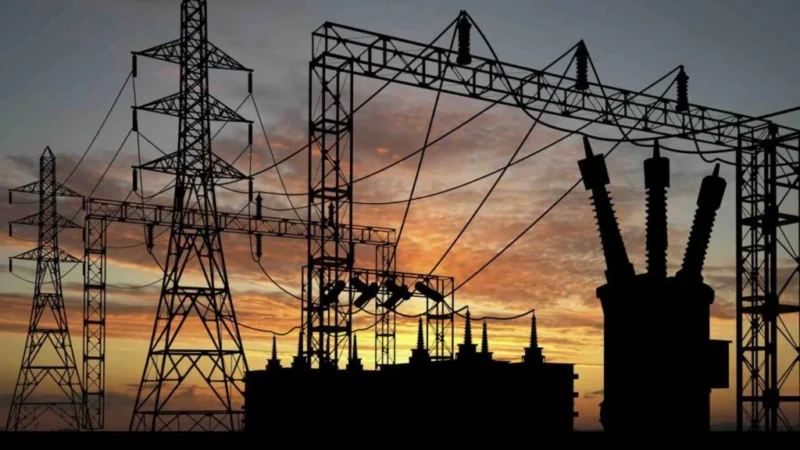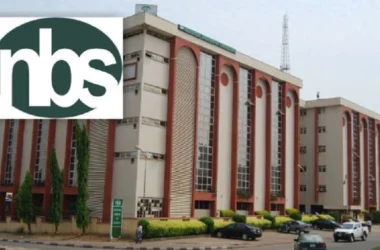Prominent business groups under the Organised Private Sector (OPS) have raised alarm over the constant collapses of Nigeria’s national power grid, warning that the persistent failures are severely harming businesses and the economy.
The Nigerian Association of Chambers of Commerce, Industry, Mines and Agriculture (NACCIMA), the Manufacturers Association of Nigeria (MAN), and the Lagos Chamber of Commerce and Industry (LCCI) are among the major voices expressing concern.
These concerns come in the wake of repeated grid failures, including three collapses within 24 hours last week. Power supply has yet to be fully restored in many parts of the country, adding to the challenges businesses face.
The Nigeria Employers’ Consultative Association (NECA) stressed that these frequent collapses are slowing economic growth and making it harder for businesses to remain sustainable, especially given the already high costs of energy.
The Manufacturers Association of Nigeria highlighted the frustrating impact these collapses have on manufacturers. Each time the grid collapses, production lines shut down, leading to significant costs to restart them.
“It’s unacceptable that most manufacturers have to always shut down production lines anytime national grid collapse occurs in the country,” stated Segun Ajayi-Kadir, Director General of MAN.
He further explained that restarting these lines adds to production costs, which manufacturers must bear alongside a 250% electricity tariff increase.
Similarly, LCCI’s Director-General, Dr. Chinyere Almona, voiced concern over the recurring grid failures, calling for privatization of the national grid as a solution.
“LCCI is deeply concerned about the frequency of collapse recorded by the national grid,” she said, adding that after 105 collapses in the last decade, there should be better understanding of the root causes and solutions by now.
Almona called on the government to collaborate with the private sector, offering regulatory support, credit, and incentives to improve power supply.
NACCIMA President, Dele Oye, also urged for full privatization of the power sector. He noted that while there have been infrastructure upgrades, like the Siemens contract, these efforts are not enough to stabilize the grid.
Oye said: “The recent spate of national grid collapses in Nigeria has raised significant concerns for our economy and the operational viability of businesses across the country.
“With the grid failing multiple times in recent months, businesses have been grappling with erratic power supply, which disrupts production lines, inflates operational costs, and ultimately affects profitability.
“The implications are dire: Prolonged outages hinder productivity and lead to lost revenue, while small and medium enterprises, often the backbone of our economy, struggle to survive under the weight of high generator costs and maintenance.
“This situation not only stifles business growth but also erodes consumer confidence and limits job creation. While the Siemens contract represents a step in the right direction toward modernizing Nigeria’s power infrastructure, it is evident that mere upgrades are insufficient.
“A comprehensive and strategic move towards fully privatizing the sector could invigorate it with much-needed efficiency, innovation, and investment.
“By unlocking private sector potential, we can enhance competition and drive improvements in service delivery that our businesses and citizens desperately need.”
NECA echoed similar sentiments, with its Director-General, Wale-Smatt Oyerinde, pointing out that the grid failures are a major obstacle to the nation’s industrial growth.
He said: “It is quite worrisome that the national grid continues to collapse. At a time there is an urgent need to fast-track the nation’s industrialization efforts, we are still bogged down with constant grid collapses.
“This constant collapse hinders economic growth and slows down enterprise sustainability efforts, given the high energy cost that businesses currently have to deal with.
“We urge the government to expedite action in overhauling the grid and also create the environment for private investors to invest. The future and our potential for energy sufficiency lie with the private sector.”
The Association of Small Business Owners of Nigeria (ASBON) also weighed in, with its President, Dr. Femi Egbesola, highlighting how grid failures increase production costs and reduce Nigerian businesses’ competitiveness internationally.
His words: “The failure of the national grid has serious consequences for Nigerian businesses and economy. It leads to industrial output being lowered and manufacturing expenses being raised as a result of frequent power outages that interrupt production operations.
“As a result, this reduces the ability of Nigerian businesses to compete internationally as the cost of production shoots up above board.
“Additionally, many firms are forced to invest in alternate power sources, such as generators, which dramatically raise our operational expenses due to the unpredictability of power supply.
“Nigeria’s economy suffers greatly from the regular failure of the national grid. It reduces output in manufacturing and services, raises household expenses, and slows growth in the economy as a whole.
“As a result, we the business community, request and advocate for immediate and long-term responses to this issue.”










